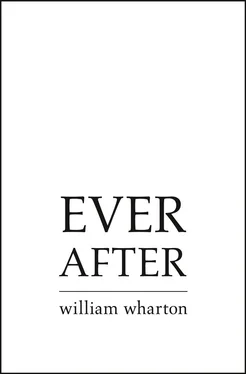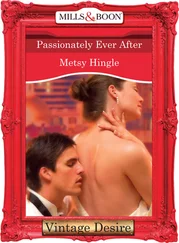WILLIAM WHARTON
Ever After

To Kate, Bill, Dayiel, and Mia. And to Margaret
who brought a beacon of light to the darkness
W.W.
Contents
Title Page WILLIAM WHARTON Ever After
Dedication To Kate, Bill, Dayiel, and Mia. And to Margaret who brought a beacon of light to the darkness W.W.
Foreword
PART ONE: Kate
Chapter 1
Chapter 2
Chapter 3
Chapter 4
Chapter 5
PART TWO: Will
Chapter 6
Chapter 7
Chapter 8
Chapter 9
PART THREE: Settlement
Chapter 10
Chapter 11
Chapter 12
Chapter 13
Chapter 14
Chapter 15
Chapter 16
Chapter 17
Chapter 18
Chapter 19
Epilogue
Also by William Wharton
Copyright
About the Publisher
As a result of the experiences described in this work, I have come to the conclusion that everything coming through the mind of man or woman is fiction. So-called truth is a convenience and a comfort for which we all search. This search seems natural and necessary to humans.
In science, observation are established as truth by replication. A concept or observation is considered true when numerous repetitions of the same concepts, observations and conclusions have been completed and verified.
However, for a long time, scientific man was convinced the sun went around the earth. This phenomenon fulfilled all the requirements for truth in its day.
History considers an event to have been true when it has a significant volume of primary, secondary and tertiary evidence, enough to warrant a statement of validity. However, it is, in the long run, merely a consensus truth. That is, most people think it is true. And, typically, they only consider it true for a limited time.
Religion takes its truth from revelation to individual humans, sometimes called prophets: superior or alien beings with special powers, who are generally not of this world. From these revelations, various versions of dogma evolve among humans which purport to be truth. Many people live their lives by these ‘truths,’ will kill or be killed for them.
I’ve gathered as much evidence, primary, secondary and tertiary, as I could. I pray the event herein described will not be replicated. I do not expect, or ask, belief from you, the reader, in the unique revelation with which I was blessed. It is reported only as part of the total experience, the holy horror of it all.
I am writing this work of biography-autobiography-fiction, concerning the event which changed our lives, in the form of a documentary novel. In the interest of the aesthetics involved in novel-writing, I have needed to employ certain novelistic devices.
There are conversations I did not hear, for example, between my daughter and her husband, which I create. They are, however, related to the unfolding events as I know them. I tell part of this tale from the point of view of my daughter, Kate, in her voice, as teenager and adult. It was necessary to use the novelist’s techniques of personal projection to do this. I hope it does not invalidate for the reader the sequence of events I wish to tell. It is not meant to.
I am a novelist. This along with painting is my mode of communication. I hope the reader will be able to enter into the events related and the emotions experienced with at least the ‘feeling of truth’ for truth.
To protect the privacy of those concerned with this tale I have changed all names except for some first names of my immediate family. To those, I’ve given my writer’s surname.
I don’t intend that this be a book of complaints except as it is necessary to explain certain events as I experienced them. I am the first to admit that bias enters all communication, even when an effort to represent truth is being made.
William Wharton
15 April 1993, Port Marly
PART ONE
Our neighborhood in Paris was what the French call a quartier populaire , a nice way of saying ‘slum.’ Actually it was an area where furniture was made, and most of the people were artisans – carpenters, upholsterers, window-makers, printers, that kind of thing. There were also artists – more and more of them the longer we lived there. But I was too young to appreciate a good thing; I wanted to live in the sixteenth arrondissement , or some other posh place like that.
That’s where Danny, my boyfriend from the American School, fits in. His father had been an ambassador and now worked for some top-secret international organization. Once an ambassador, always an ambassador; so his calling-card had his whole title written out. I was very impressed.
Danny wasn’t a very good student, but he was good-looking and really did live in the sixteenth arrondissement . He was the only student on campus to own an automobile. He was older than the other kids and had a French driving license. In France you need to be eighteen to drive.
We went together all during our last two years of school. I remember Christmas of our senior year especially.
We spent it down at the mill, an old, stone water-mill in the Morvan, a part of Burgundy, where our family goes for Christmas. It’s always cold and there’s nothing to do.
I was afraid I was pregnant, even though I wore a diaphragm – Mom and Dad insisted on it when I turned thirteen. On top of everything, Robert, my little brother, who was only about three or four, kept singing the Christmas song ‘Mary had a baby.’ Each time he did, Danny and I either moaned or giggled, depending on our mood. If we got to giggling, we couldn’t stop. I know it drove Mom crazy.
Later, Danny asked me to marry him, although I wasn’t pregnant. It was just before I graduated. When I told Dad and Mom, Dad looked at me a long time before he said anything.
‘Well, Kate, I think he’ll make a great first husband.’
I thought that was awfully cynical, but he turned out to be right. Danny did make a good first husband.
Right after high school, Danny and I went to California and studied at a junior college. We lived in a tiny apartment. Neither of us had paid enough attention in school to enter a real university. Also, as my parents were still California residents, I didn’t need to pay tuition. We lived together two years and then, when Danny transferred to UCLA, got married.
The wedding was in California, arranged by my Aunt Emmaline, Mom’s sister, but the real wedding was at the mill.
I’m not religious, but wanted a wedding in the little village church on top of the hill that looked down over the mill. Danny wasn’t even baptized. Dad took my baptismal certificate and used it to make one for Danny, hand-lettered in Dad’s usual crooked, artistic way, and then photocopied it. It looked better than mine. We then sent our certificates off to the bishop and I guess they wound up in the Vatican. I don’t know.
Dad describes the wedding in a book he wrote called Tidings . An old war buddy of his played the music from Fiddler On The Roof . We passed out translations to the people in the church, most of whom were French and couldn’t understand a word. All of us cried when he played ‘Where Is That Little Girl I Carried?’ The recessional was ‘Sunrise, Sunset.’ It made for terrific marriage music.
The mill was fixed up, and there was lots of food and music. The men in the village shot shotguns in the air, and a couple of them built a fire in the garage under the grange where we were dancing. This was to add a little more excitement. Excitement we didn’t need.
Читать дальше













